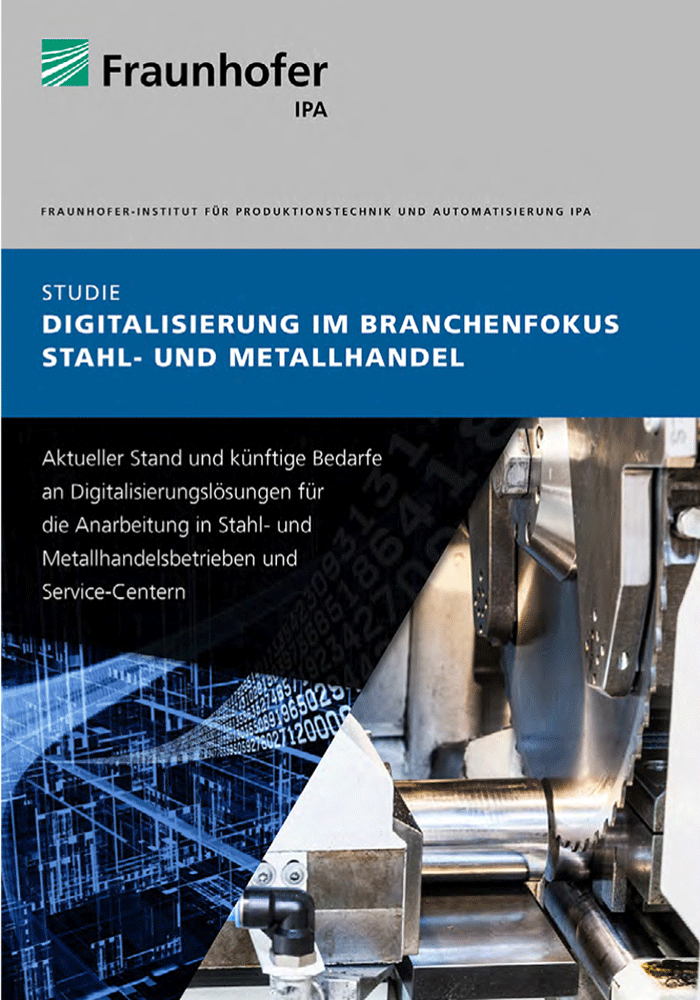 In order to be able to react flexibly to economic changes, companies are increasingly relying on digital processes. Many small and medium-sized companies are lagging behind in this development. In a study, Fraunhofer IPA summarizes the current status and future requirements as well as approaches to digitalization and Industry 4.0 applications in the metal and steel trade.
In order to be able to react flexibly to economic changes, companies are increasingly relying on digital processes. Many small and medium-sized companies are lagging behind in this development. In a study, Fraunhofer IPA summarizes the current status and future requirements as well as approaches to digitalization and Industry 4.0 applications in the metal and steel trade.
In addition to trading, the core business of the metal and steel trade is the cutting and processing of semi-finished products. The latter involves further simple production steps such as drilling, chamfering or face milling. The modern steel and metal trade is therefore becoming an increasingly active part of the value chain and must deal with increasing demands. Industry 4.0 applications and digital products can help with this.
The companies surveyed focus on specific requirements when integrating these applications: Data evaluation, transparency and real-time capability of systems are particularly important, while flexibility in production structures, networking of production equipment and decentralization of information storage tend to take a back seat.
According to the respondents, the greatest challenge in implementing Industry 4.0 systems in prefabrication is the integration of existing machines and interface problems. Implementation examples of existing products of Industry 4.0 applications show great potential, but are often not yet on the market in the desired maturity or are only used to a limited extent. Up to now, data has largely been recorded in writing or locally in the machine control system. External use is often not possible. However, digital applications could help to obtain more easily accessible process data for order and production planning, for example.
By their own definition, 80% of all participants stated that they had no experience with Industry 4.0 applications. However, 60% of respondents would like to use digital applications in the future and are willing to invest in them. The degree of automation in production in the steel and metal trade also shows high potential. 95% of study participants stated a degree of automation of less than 50%.
All company hierarchies accept digitalized products in the company, but the management level is more open to the topic of Industry 4.0 than the workers at the machines. Acceptance also depends on the age of the employees.
This study is based on a survey of 66 companies and nine interviews with industry experts.
https//www.metallhandel_studie.de




